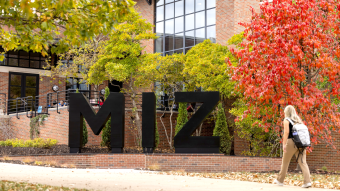May 6, 2022
Transcript
Brian Consiglio: Though over 400 million people have survived COVID-19, not much is known about the long-term impacts of the virus. Now, a new study from the University of Missouri shows a relationship between pneumonia associated with COVID-19 and an increased risk of dementia.
MU School of Medicine researcher, Adnan Qureshi, teamed up with researchers at the MU College of Engineering and the MU Institute for Data Science and Informatics to analyze data from U.S. health care facilities. Qureshi says their findings show that COVID-19 can impact brain function.
Qureshi: Mental processing is slow, is impaired, and they just can't function at the same level as they were able to do before the infection.
Consiglio: After looking at more than 10 thousand patient cases of those with COVID-19 pneumonia, the researchers discovered 312 people developed new onset dementia. That comes out to about 3 percent of the patients studied. That may not seem high, but the patients who suffered from pneumonia associated with COVID-19 were 30 percent more likely to develop new onset dementia than patients who suffered from other forms of pneumonia. Qureshi said that this new information can be used to bring awareness to potential long-term effects of COVID-19.
Qureshi: There is actually a case to be made that individuals should be screened once they have recovered to make sure that their cognition, their memory, they do not have any deficits from the infection itself.
Consiglio: For more on this research visit, MUhealth.org/formedia.
I’m Brian Consiglio with a Spotlight on Mizzou.



